
The following analysis is the first in a series of reports from Mars United Commerce’s Target Customer Development team that will examine the role consumer brands can play in helping the retailer’s mission critical ‘Target Forward’ initiative. This first report looks at Target’s “always on” approach to Diversity, Equity & Inclusion.
For years, Target has joined many other retailers in staging a campaign celebrating Black History Month in February. But for Target — which typically has been more progressive than most retailers — this is a small part of their “always on” approach to diversity, equity and inclusion (DEI). Target has focused on these efforts for decades, and in recent years has steadily increased public communication about their activity.
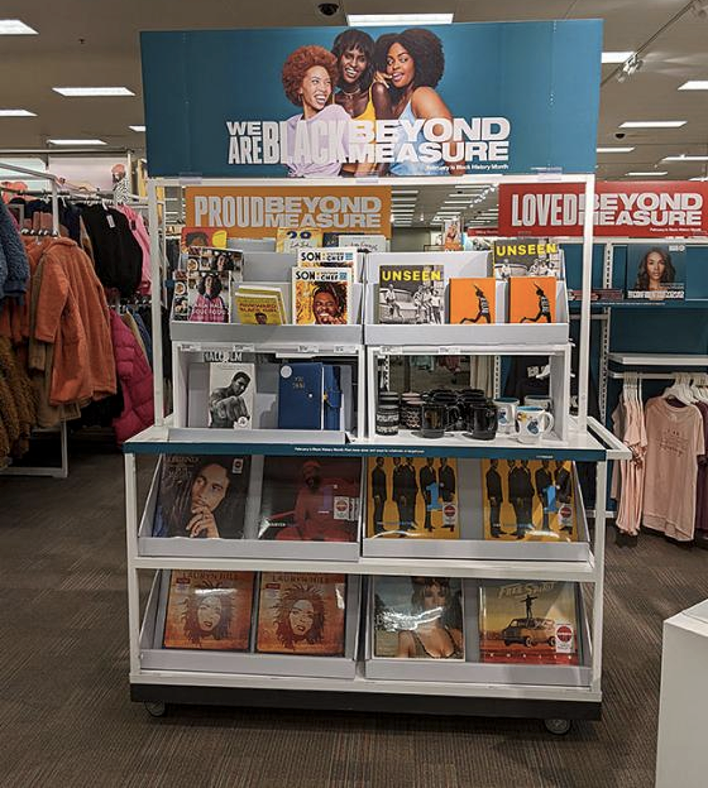
Target guests can shop and support Black business founders through its evergreen Black Beyond Measure shopping initiative, as well as its women-led business founders on its Women Owned shopping hub. The mission is even embedded in the signoff the retailer introduced in a TV spot last spring: “What we value most shouldn’t cost more.“
Commenting on the campaign launch, Chief Marketing and Digital Officer Cara Sylvester said:
“Our goal is to amplify the good that’s within reach for all of us every day and spark more possibility in our guests’ lives in the way that only Target can.”
In summer 2020, amidst the landscape of the murder of George Floyd and the rebuilding of its Lake Street store, Target launched the Racial Equity Action and Change (REACH) committee to accelerate its DEI strategy — which already had earned the retailer recognition as a Top 50 company from DiversityInc. for 11 straight years. The committee is led by senior leaders with a diverse range of skills and perspectives whose job responsibilities reflect key areas of DEI focus.
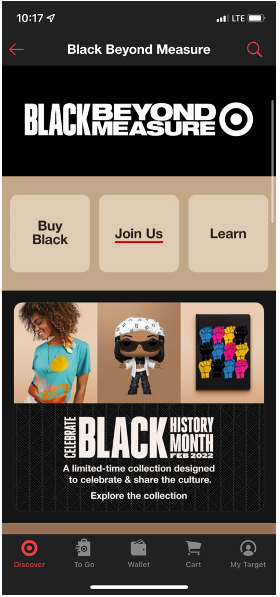
Among the goals of REACH is to create an “inclusive guest environment for Black Americans.” Target will realize this by spending more than $2 billion with Black-owned businesses by 2025 and devoting 5% of its annual media budget to Black-owned partners beginning in 2022.
“We want to create environments where all guests feel welcome and see themselves represented throughout their experience with Target, including our marketing and with the products we sell in our stores and online,” the company states.
It’s important to note that the actions of REACH fall under the more expansive Target Forward initiative, whose goal is to “co-create an equitable and regenerative future together with our guests, partners and communities.”
In practice, this involves:
- Investing capital, opening access to new markets, sharing the expertise of senior leadership through networking, business-building opportunities and mentoring.
- Funding the Target Scholars program for students at Historically Black Colleges and Universities (HBCU).
- Committing $100 million through 2025 to help fuel economic prosperity in Black communities by supporting local organizations, beginning with $10 million to its own hometown of Minneapolis.
BRINGING THE VISION TO LIFE
In spring 2021, Target named Loni Booker as Creative Director for Multicultural Audience Work to help “shape Target’s next chapter as we dig even deeper into belonging, inclusivity, and guest experiences,” as she explained on her @brickandnosh Instagram account. “This is important work, and I am grateful to work at a company that prioritizes this type of engagement.”
Booker was a creative force behind Target’s latest connected commerce activation, which launched in early January and ran through February to celebrate Black History Month. (Below is Bobby Rogers, Art Director and Photographer for the campaign, in a photo from his Instagram feed.)
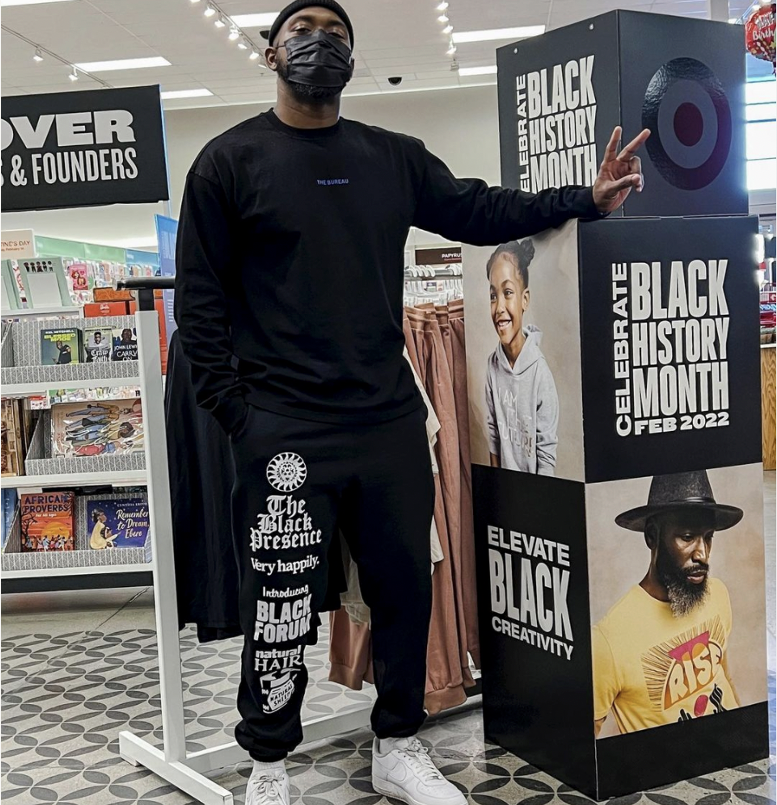
The design and imagery for this year’s Black History Month campaign, both in-store and online, were created by a team consisting mostly of people of color — a clear indication that Target is actively following through on its commitment to “support the communities we serve.” By giving space and resources to non-dominant communities to create the work targeting those same groups, Target is creating authentic content while delivering on its promise of support.
These efforts were important enough to be discussed during Target’s full-year earnings call on March 1, when Sylvester explained:
“It’s not just what the guest sees, it’s also about what’s happening behind the scenes that makes all guests feel seen. We’re partnering with diverse content creators in new ways, from production crews to on-site catering in front of and behind the camera.”
BLACK HISTORY MONTH ACTIVATION
What Target guests did see this February was “a celebration of Black Life, in real life,” according to the company, through an activation encompassing a storewide effort and a variety of digital activity, especially through social channels. Supporting Target’s own efforts was robust organic social media activity from both micro and macro influencers, some of which Target reposted in its own Instagram feed.

In stores, themed displays were striking, using a mix of functional product merchandising and statuesque signage. Corrugated pillars in matte black with glossy black spot printing of the Target bullseye drew attention to the models featured in the imagery. (See example below, along with other images from the campaign.)
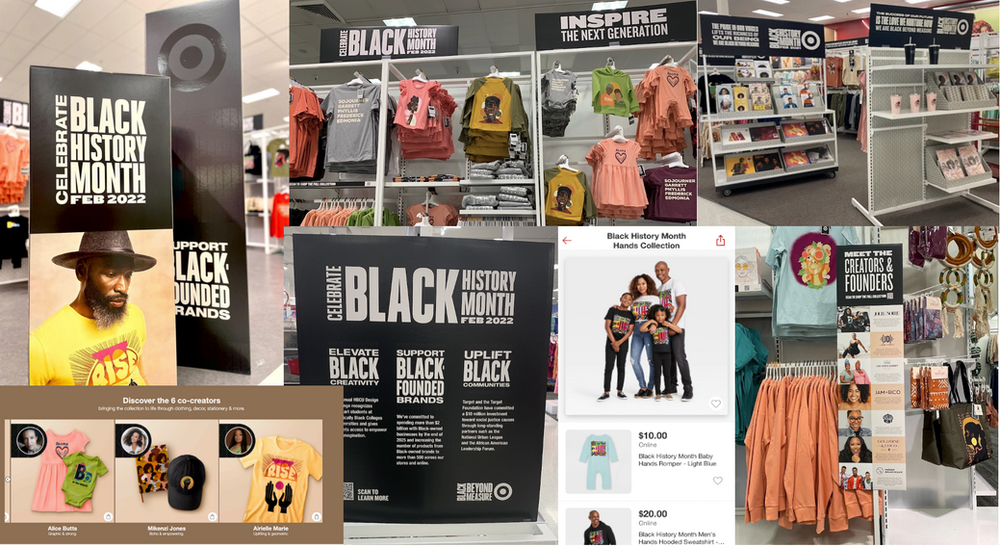
This year’s product offering included designs from Target’s second-annual HBCU Design Challenge winners. The winners were also given the opportunity to partner with the Target team to learn about aspects of production, from textile selection to in-store merchandising.
The destination for all the activity was a shoppable Black History Month landing page on Target.com. Notably, peak weekly searches for “black history month” on Target.com increased 25% from 2021 to 2022, signaling that awareness of Target’s annual campaign has increased.
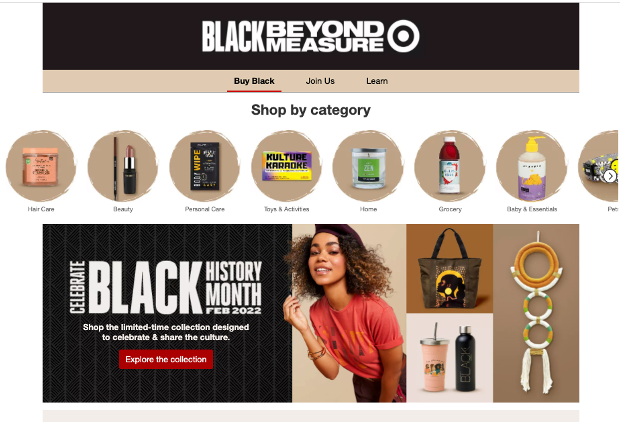
FUTURE FORWARD ACTIVITY
While Target continues to manage its own enterprise marketing campaigns, it also recently announced additional substantive commitments:
- A multimillion-dollar investment in a new “Bet on Black” partnership with media company REVOLT.tv.
- Media grants to select small, emerging brands (with Target sales of $3 million or less) to offset the costs of advertising with the retailer’s Roundel media group.
- Partnership with Bridgeforth Farms, a 5th-generation Black family-owned business, to bring sustainably grown cotton to its own brand products.
- Nearly 40 new beauty brands, half of which are Black-owned.
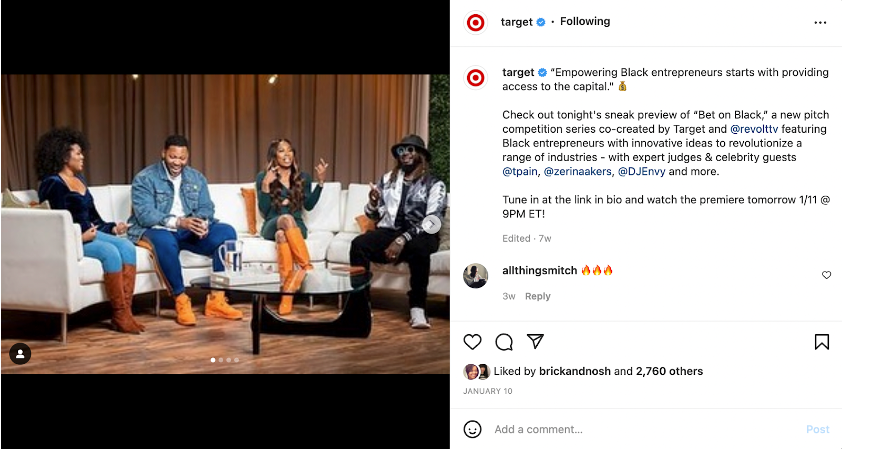
WHAT NATIONAL BRANDS CAN DO
As brands and vendors who work with Target, it’s critical that we find our role in furthering Target’s DEI efforts. Here are ways you can level up your partnership with the retailer and indirectly support its activity:
- Share Target’s initiatives and activations within your organization as best-in-class examples. This visibility will benefit everyone from the inside-out.
- Educate yourself about your organization’s DEI goals and efforts. Share that information with your Target teams and ensure your company makes it publicly accessible.
- Plan an exploratory or brainstorm session with your cross-functional teams, then take the best ideas to your partners at Target and Roundel.
- Support diversity in advertising by selecting influencers from diverse backgrounds and using diverse talent for your media campaign creative. Ensure the representation is authentic and natural, and remember that diversity is visible in many more ways than just skin color.
- Ensure your work is created and reviewed by members of the groups it is designed to represent and target. Mars United’s DEI committee has a weekly process through which it reviews our work for cultural competency.
- Partner with a Black-owned business that is just starting out at Target and cover its media costs.
- Apply to mentor an entrepreneur or be a speaker to participate in the Target Accelerators consulting program (a new cohort starts in May 2022).
- If your company has acquired a Black-owned business, ensure that it is registered with Target’s Supplier Diversity program.
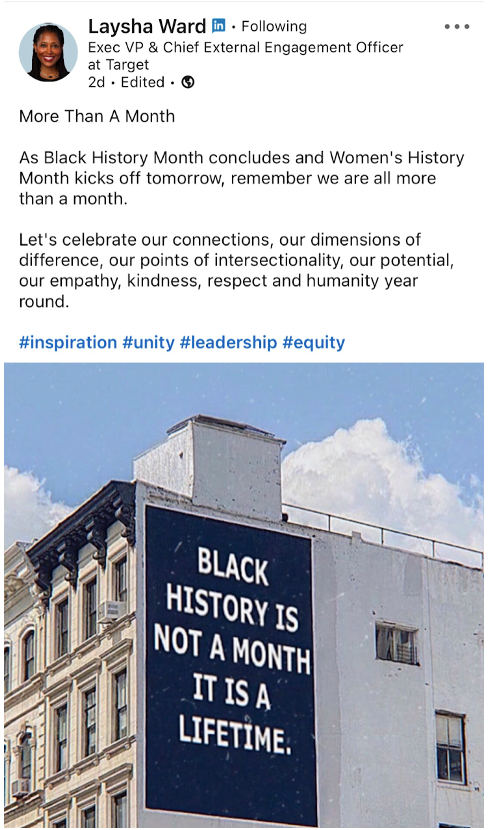
The LinkedIn post at right clearly illustrates our main takeaway. Each of the many initiatives discussed in this report are an opportunity for Target to shine a spotlight on equity and accessibility.
The retailer has monumental resources and can change the game for often-marginalized groups. And it is striving to ensure that guests from all groups enjoy personalized, inclusive products and experiences that let them feel seen and heard in stores and online every day.
______
At Mars United Commerce, we are committed to being leaders in innovation. To help our clients stay ahead of the competition in a fast-paced and constantly evolving marketplace, we closely monitor any and all news across the Target ecosystem so clients stay “in-the-know” about this key customer. Meghan Heltne, SVP-Client Leadership, heads up our Target team in Minneapolis. Contact her: heltnem@marsunited.com.



